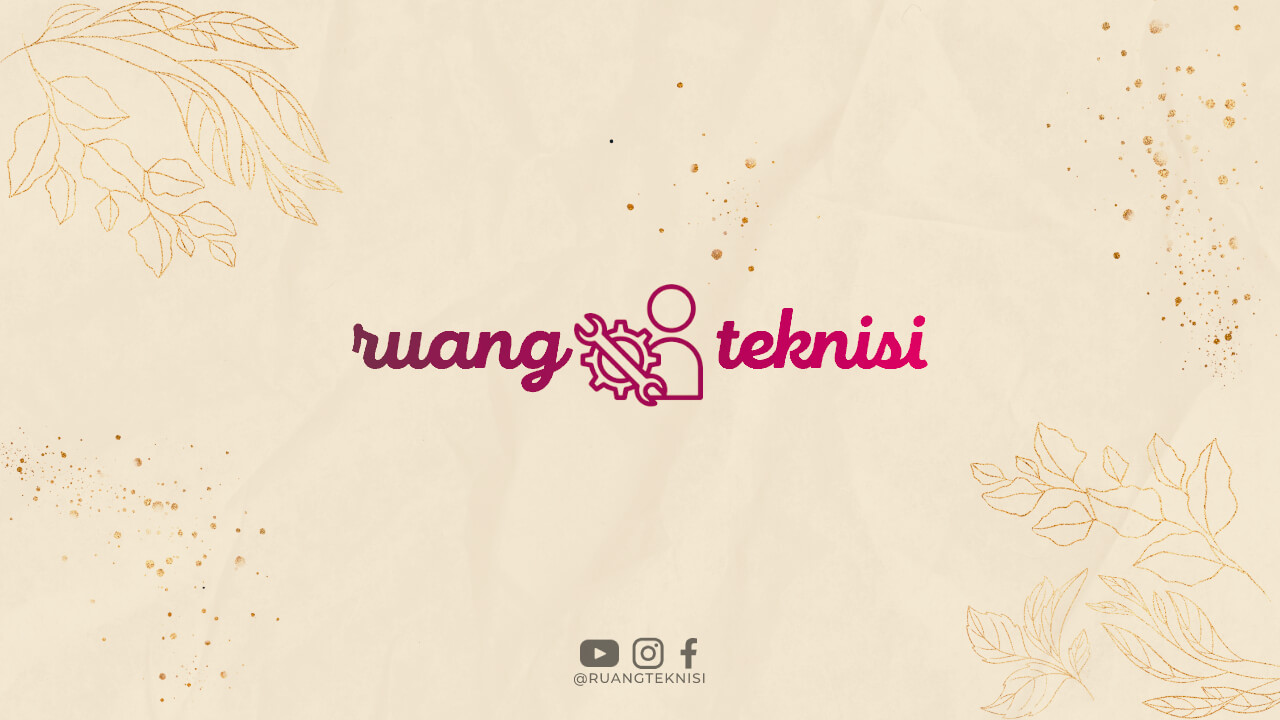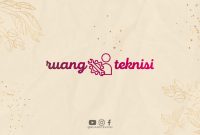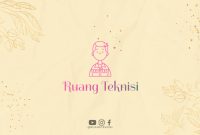Introduction
Getting admitted to a university is a crucial step towards a successful career. However, the university admission assessments can be challenging and competitive. To secure your place, it is vital to have effective strategies in place. In this article, we will unveil some proven strategies that can help you succeed in university admission assessments.
Understanding the Assessment Process
Know the Types of Assessments
Before diving into preparation, it is essential to understand the assessment process. Different universities may have different requirements, so research the specific types of assessments they conduct. These may include aptitude tests, interviews, written exams, or a combination of these.
Research the Assessment Structure
Once you know the types of assessments, dig deeper into the structure of each. Look for information on the number of sections, time limits, question formats, and scoring criteria. Understanding the structure will help you plan your preparation accordingly.
Starting Early and Creating a Study Plan
Benefits of Starting Early
Procrastination can be your worst enemy when it comes to university admission assessments. Starting your preparation early allows you ample time to cover all necessary topics, practice extensively, and build confidence.
Breaking Down Your Study Plan
Developing a study plan is essential to stay organized and focused. Divide your study time into smaller, manageable chunks. Allocate specific time slots for each subject or topic. This approach ensures comprehensive preparation without feeling overwhelmed.
Include Regular Revision in Your Plan
While studying new material is crucial, revision is equally important. Allocate dedicated time slots for regular revision to reinforce concepts and prevent forgetting. Review previously covered topics at regular intervals to maintain a strong foundation.
Familiarizing Yourself with Past Papers
Importance of Past Papers
Past papers are invaluable resources for understanding the exam format and the types of questions that may be asked. They allow you to familiarize yourself with the assessment structure and gain confidence by practicing under timed conditions.
Effective Approach to Solving Past Papers
When solving past papers, approach them strategically. Begin by understanding the question patterns and the areas they focus on. Identify common themes or topics that frequently appear and ensure you have a solid understanding of those areas.
Practice Under Timed Conditions
To simulate the actual exam environment, solve past papers under timed conditions. Set a timer and challenge yourself to complete each section within the allocated time. This practice helps improve your time management skills and builds confidence in performing under pressure.
Seeking Guidance from Teachers and Mentors
Benefits of Seeking Guidance
Don’t hesitate to seek guidance from teachers, mentors, or professionals who have successfully gone through the university admission process. They can provide valuable insights, recommend study materials, and offer tips and strategies to enhance your preparation.
Approaching Teachers and Mentors
When approaching teachers and mentors, be clear about your goals and the specific areas you need help with. Ask for their guidance on recommended study materials, useful resources, and any additional support they can provide.
Utilizing Online Communities and Forums
In addition to seeking guidance from individuals, take advantage of online communities and forums. These platforms offer a wealth of information and allow you to connect with fellow applicants. Engaging in discussions can provide different perspectives and additional support.
Developing Critical Thinking Skills
Understanding Critical Thinking
Critical thinking is the ability to analyze, evaluate, and interpret information objectively. University admission assessments often assess this skill, so it’s crucial to develop and enhance your critical thinking abilities.
Engaging in Analytical Activities
To enhance critical thinking, engage in activities that promote analytical thinking. Solve puzzles, brain teasers, and logic-based games. Read challenging literature and discuss complex topics with peers. These activities help sharpen your analytical skills.
Practicing Analyzing and Evaluating Arguments
Develop the ability to analyze and evaluate arguments by critically examining different viewpoints. Practice identifying strengths, weaknesses, and logical fallacies in arguments presented in articles, books, or discussions.
Developing Strong Writing Skills
Importance of Strong Writing Skills
Written exams and essay-based assessments are common in university admissions. Strong writing skills are crucial to effectively communicate your ideas and demonstrate your understanding of the subject matter.
Practice Writing Essays
Regularly practice writing essays on various topics. Start with simpler topics and gradually tackle more complex subjects. Focus on developing coherent arguments, structuring your essays logically, and expressing your thoughts clearly.
Seek Feedback on Your Writing
Ask teachers, mentors, or peers to review your essays and provide constructive feedback. Pay attention to their suggestions for improvement, such as enhancing your writing style, refining your arguments, and addressing any grammatical or structural errors.
Improving Time Management Skills
The Importance of Time Management
Time management is crucial during assessments. Properly managing your time allows you to allocate sufficient attention to each section, complete all questions, and avoid rushing or leaving questions unanswered.
Practice Time-Bound Questions
To improve your time management skills, practice solving questions under timed conditions. Set a timer and challenge yourself to complete each question or section within the allocated time. This practice trains you to work efficiently under time constraints.
Identify Time-Consuming Sections
During your preparation, identify sections or question types that consume more time than others. Allocate appropriate time slots for these sections, ensuring you don’t spend an excessive amount of time on them at the expense of other sections.
Staying Updated with Current Affairs
Importance of Current Affairs
Universities often include current affairs questions to assess your awareness of global events and your ability to connect them to academic disciplines. Staying updated with current affairs demonstrates your engagement with the world around you.
Read Newspapers and Reliable News Sources
Develop a habit of reading newspapers or online news sources regularly. Focus on reputable sources that cover local, national, and international news. Pay attention to significant events, their implications, and any relevant debates or discussions.
Join Discussion Groups
Join discussion groups or forums where current affairs are discussed. Engage in conversations, express your opinions, and listen to different perspectives. These discussions help you better understand various viewpoints and enhance your critical thinking skills.
Building a Support System
Importance of a Support System
Having a support system during the stressful admission process can be immensely beneficial. Surround yourself with supportive friends and family who can provide encouragement, motivation, and help you stay focused.
Join Study Groups
Form or join study groups with fellow applicants. Collaborative learning environments allow you to discuss concepts, clarify doubts, and exchange study materials. Engaging in group discussions broadens your perspective and deepens your understanding of subjects.
Seek Emotional Support
The admission process can be emotionally challenging. Share your concerns, fears, and aspirations with your support system. Their encouragement and understanding can help alleviate stress and keep you motivated throughout the journey.
Practicing Self-Care
The Importance of Self-Care
Remember to prioritize self-care during your preparation. Taking care of your physical and mental well-being is essential for optimal performance. Neglecting self-care can lead to burnout, affecting your overall performance in the assessments.
Get Enough Sleep
Adequate sleep is crucial for cognitive function and memory consolidation. Make sure to get enough sleep each night to ensure your brain is well-rested and ready to absorb and retain information.
Eat Nutritious Meals
Fuel your body and brain with nutritious meals. A balanced diet consisting of fruits, vegetables, whole grains, and lean proteins provides essential nutrients for optimal brain function and sustained energy levels throughout the day.
Engage in Relaxation Techniques
Take breaks during your study sessions to engage in relaxation techniques. Try deep breathing exercises, meditation, or mindfulness to reduce stress, improve focus, and recharge your mental energy.
Utilizing Online Resources
Benefits of Online Resources
Online resources provide a wealth of study materials, practice tests, and interactive platforms to enhance your preparation. Utilize these resources to supplement your learning and gain exposure to a wide range of questions and concepts.
Choose Reputable Educational Websites
When using online resources, ensure you choose reputable educational websites. Look for platforms that offer verified content, expert guidance, and a track record of success. Verify the credibility of the authors or institutions behind the resources.
Participate in Virtual Study Groups
Online platforms often host virtual study groups where students can
connect and collaborate
with peers from around the world. Joining these study groups allows you to engage in discussions, share study materials, ask questions, and learn from different perspectives. Virtual study groups can provide a sense of community and support, even if you are studying remotely.
Take Advantage of Practice Tests
Online resources often offer practice tests designed to simulate the actual assessment experience. Take advantage of these practice tests to familiarize yourself with the format, assess your knowledge and skills, and identify areas that require further improvement.
Maintaining Confidence
The Power of Confidence
Confidence plays a crucial role in performing well during assessments. Believing in yourself and your abilities will help you approach the assessments with a positive mindset and perform to the best of your abilities.
Avoid Comparisons
Avoid comparing yourself to others. Remember that each person’s journey is unique, and everyone progresses at their own pace. Focus on your own progress and growth, celebrate your achievements, and use setbacks as opportunities for learning and improvement.
Visualize Success
Visualization is a powerful technique that can boost confidence and performance. Spend a few minutes each day visualizing yourself successfully completing the assessments, receiving positive outcomes, and ultimately getting admitted to your dream university.
Preparing for Interviews
Understanding the Interview Process
If interviews are part of the admission process, it is crucial to understand the purpose and format of the interview. Research common interview questions, the desired qualities the university seeks, and the specific focus of the interview.
Practice Common Interview Questions
Prepare responses to common interview questions, such as questions about your strengths, weaknesses, experiences, and future goals. Practice answering these questions with confidence and clarity, ensuring that your responses highlight your unique qualities and accomplishments.
Develop Strong Body Language and Communication Skills
During the interview, your body language and communication skills play a significant role in leaving a positive impression. Practice maintaining good posture, making eye contact, and using confident and articulate language. Consider recording yourself to identify areas for improvement.
Taking Mock Tests
Benefits of Mock Tests
Mock tests simulate the actual exam environment and provide an opportunity to assess your readiness. They help identify your strengths and weaknesses, allowing you to focus your efforts on improving weaker areas before the actual assessments.
Create a Mock Test Schedule
Devise a schedule for taking mock tests throughout your preparation period. Allocate specific days or weeks for each subject or section. Treat each mock test as a real exam, adhering to the time limits and test conditions to replicate the actual experience.
Analyze Performance and Review Answers
After completing each mock test, analyze your performance. Identify areas where you excelled and areas that need improvement. Review incorrect answers, understand the correct solutions, and seek additional guidance or study resources to strengthen your knowledge.
Utilizing Mnemonic Techniques
Benefits of Mnemonic Techniques
Mnemonic techniques help improve memory retention by providing creative ways to associate information with familiar cues or patterns. Utilizing mnemonic techniques can enhance your ability to recall and retain complex information during assessments.
Experiment with Various Mnemonic Strategies
Explore different mnemonic strategies to find those that work best for you. Some common techniques include creating acronyms, using visualization to associate concepts with vivid mental images, or creating associations with familiar objects or locations.
Apply Mnemonic Techniques to Specific Subjects
Adapt mnemonic techniques to suit different subjects or topics. For example, in science subjects, create memorable acronyms to remember the order of elements or use visualization techniques to remember complex biological processes. Tailor mnemonic techniques to fit the content you need to remember.
Staying Motivated
Set Short-Term Goals
Setting short-term goals helps break down the larger goal of getting admitted into a university. Create achievable and measurable goals, such as completing a certain number of practice questions, improving your score on a mock test, or mastering a specific topic.
Reward Yourself
Reward yourself when you achieve milestones or complete tasks. Celebrate your accomplishments, whether it’s treating yourself to something you enjoy or taking a well-deserved break. These rewards reinforce positive behavior and provide motivation to keep going.
Visualize Your Success
Visualization techniques can also help in staying motivated. Visualize yourself successfully completing assessments, receiving positive outcomes, and envisioning the exciting journey that lies ahead in your chosen university. Use this visualization as a source of inspiration and motivation.
Joining Study Groups
The Benefits of Study Groups
Study groups offer a collaborative learning environment where you can engage in discussions, clarify doubts, and learn from your peers. Joining study groups allows you to share knowledge, gain new perspectives, and deepen your understanding of subjects.
Forming or Joining Study Groups
Form a study group with like-minded individuals who are also preparing for university admission assessments. Alternatively, join existing study groups through online platforms or university forums. Engage in regular discussions, exchange study materials, and support each other throughout the preparation process.
Assigning Roles and Responsibilities
Assign specific roles and responsibilities within the study group to ensure productive and efficient sessions. For example, designate someone as the discussion leader, note-taker, or question preparer. Rotate these roles to ensure everyone gets a chance to contribute and benefit.
Finding a Balance
Importance of Balancing Your Life
While dedicating sufficient time to your studies is essential, maintaining a healthy balance in other aspects of your life is equally important. Neglecting hobbies, social activities, or personal well-being can lead to burnout and hinder overall performance.
Create a Schedule that Includes Non-Study Time
Create a schedule that includes designated time for hobbies, physical activity, and spending time with friends and family. Treat these activities as important commitments that contribute to your overall well-being and happiness.
Establish Boundaries
Setting boundaries is crucial to maintain a healthy balance. Avoid overcommitting to unnecessary obligations or excessive study hours. Learn to say no when necessary, prioritize your needs, and allocate time for self-care and relaxation.
Learning from Mistakes
Embrace Mistakes as Learning Opportunities
Don’t get disheartened by mistakes or low scores in practice tests. Embrace them as valuable learning opportunities. Analyze your mistakes, understand where you went wrong, and seek additional guidance or resources to improve in those areas.
Identify Patterns in Mistakes
Look for patterns in your mistakes. Are there specific types of questions or concepts that consistently trip you up? By identifying patterns, you can focus your efforts on improving in those particular areas and avoid repeating the same mistakes in the future.
Seek Additional Guidance
If you are consistently struggling with certain topics, seek additional guidance from teachers, mentors, or online resources. Don’t hesitate to ask for help when needed. Understanding your weaknesses and actively working to overcome them is a vital part of the learning process.
Developing Effective Note-Taking Techniques
Benefits of Effective Note-Taking
Effective note-taking enhances your understanding and retention of information. It allows you to organize key concepts, make connections between ideas, and have a concise summary of the material for future reference.
Experiment with Different Methods
Explore different note-taking methods to find what works best for you. Some popular techniques include mind maps, Cornell notes, bullet points, or a combination of these. Adapt your note-taking style based on the subject matter and your learning preferences.
Review and Revise Your Notes
Regularly review and revise your notes to reinforce your understanding of the material. Go through your notes after each study session, clarify any unclear points, and make additional annotations if necessary. Consider rewriting or summarizing your notes to consolidate your knowledge.
Maintaining a Positive Mindset
The Power of Positivity
A positive mindset can significantly impact your performance and overall well-being. Embrace optimism, believe in your abilities, and maintain a positive outlook throughout your preparation journey. Positive thinking can help you overcome challenges and approach assessments with confidence.
Surround Yourself with Positivity
Surround yourself with positive affirmations, motivational quotes, or images that uplift your spirits. Create a study environment that is conducive to positivity and inspiration. Eliminate distractions and fill your space with objects or elements that bring you joy and positivity.
Practice Gratitude
Cultivate a habit of gratitude by reflecting on the things you are thankful for each day. This practice helps shift your focus towards the positive aspects of your preparation journey and fosters a mindset of appreciation and contentment.
Managing Test Anxiety
Understanding Test Anxiety
Test anxiety is a common experience that can interfere with your performance during assessments. It is important to manage and reduce test anxiety to perform at your best.
Recognize and Acknowledge Your Anxiety
Start by recognizing and acknowledging your test anxiety. Understand that it is a normal response to a high-pressure situation. Acknowledging your anxiety can help you take proactive steps to manage it effectively.
Practice Relaxation Techniques
Engage in relaxation techniques to calm your mind and body before and during assessments. Deep breathing exercises, meditation, or progressive muscle relaxation techniques can help reduce anxiety and promote a sense of calmness.
Develop a Pre-Assessment Routine
Create a pre-assessment routine that includes activities that help you relax and focus. This could involve listening to calming music, doing light stretches, or engaging in positive self-talk. Stick to this routine before each assessment to create a sense of familiarity and comfort.
Positive Visualization
Visualize yourself performing confidently and successfully during the assessments. Imagine yourself calmly tackling each question, feeling confident, and achieving positive outcomes. This positive visualization can help counteract negative thoughts and alleviate anxiety.
Regular Revision and Review
The Importance of Regular Revision
Regular revision is crucial to reinforce concepts, improve retention, and ensure a strong foundation of knowledge. Dedicate dedicated time slots for revision in your study plan to continuously review and consolidate what you have learned.
Create a Revision Schedule
Develop a revision schedule that allocates specific time slots for each subject or topic. Prioritize challenging areas or topics that require more attention. Regularly review your notes, textbooks, and reference materials to refresh your memory and deepen your understanding.
Test Yourself through Mini Quizzes
Incorporate regular mini quizzes or self-assessment activities into your revision routine. Test yourself on key concepts, definitions, or problem-solving techniques. This active recall helps reinforce learning, identify gaps in your knowledge, and focus your revision efforts.
Seek Clarification and Ask Questions
If you come across any areas or topics that you find confusing or difficult to understand during revision, seek clarification. Reach out to your teachers, mentors, or peers to ask questions and address any uncertainties. A clear understanding of the material is crucial for success in assessments.
Understanding Course Requirements
Research Prerequisites and Desired Skills
Take the time to thoroughly research and understand the prerequisites and desired skills for the course you are applying to. Look for specific academic requirements, extracurricular activities, or work experience that the university values in potential candidates.
Align Your Preparation Accordingly
Once you have identified the specific requirements and desired skills, align your preparation accordingly. Focus on strengthening the areas that are directly relevant to the course and highlight your experiences and achievements that demonstrate those desired skills.
Seek Opportunities to Enhance Desired Skills
If you find that you have gaps in the desired skills for the course, seek opportunities to enhance and develop those skills. Look for relevant internships, volunteer work, or online courses that can help you acquire and demonstrate these skills.
Seeking Feedback and Continuous Improvement
Importance of Feedback
Feedback is a valuable tool for self-improvement. Actively seek feedback on your practice assessments, essays, or interview performances. Constructive criticism helps you identify areas for improvement and refine your approach.
Ask for Specific Feedback
When requesting feedback, be specific about what you would like input on. Ask for feedback on your content, organization, clarity of ideas, or any specific aspects you want to focus on. Specific feedback allows you to target areas for improvement more effectively.
Reflect and Implement Feedback
Reflect on the feedback you receive and identify actionable steps you can take to address any areas of improvement. Implement the feedback in your subsequent practice assessments or study sessions to demonstrate growth and continuous improvement.
Track Your Progress
Keep a record of your progress throughout your preparation journey. Document your scores, achievements, and areas of improvement. Regularly review this record to track your growth and motivate yourself by seeing how far you have come.
Being Authentic and True to Yourself
Express Your True Self
During interviews and written assessments, be genuine and express your true self. Avoid trying to project an image that you think the assessors want to see. Authenticity and sincerity leave a lasting impression and help you stand out from other candidates.
Showcase Your Unique Experiences and Perspectives
Emphasize your unique experiences, perspectives, and accomplishments in your application materials and interviews. Highlight the qualities and skills that make you distinct and demonstrate how they align with the values and goals of the university.
Be Prepared to Discuss Your Passions
Universities are interested in candidates who are passionate about their chosen field of study. Be prepared to discuss your passions, interests, and long-term goals. Show enthusiasm and articulate how your interests align with the course and university.
Staying Informed about University Policies
Research University Policies and Deadlines
Stay informed about the policies and guidelines of the university you are applying to. Research important deadlines, submission requirements, and any specific instructions provided by the university. Adhering to these policies ensures that your application is complete and submitted on time.
Follow Instructions Carefully
Read and follow all instructions provided by the university carefully. Pay attention to formatting requirements, word limits, document submission guidelines, and any additional materials that need to be submitted. Failure to follow instructions may result in your application being disregarded.
Seek Clarification if Needed
If you have any doubts or questions about the university’s policies or application process, don’t hesitate to seek clarification. Reach out to the university’s admissions office or consult their official website for accurate information. It is better to seek clarification than to make assumptions.
Conclusion
Securing success in university admission assessments requires a combination of effective strategies, dedication, and perseverance. By implementing the strategies outlined in this article, you can enhance your chances of admission and embark on a successful academic journey. Remember, preparation is the key to unlocking the doors to your dream university.




